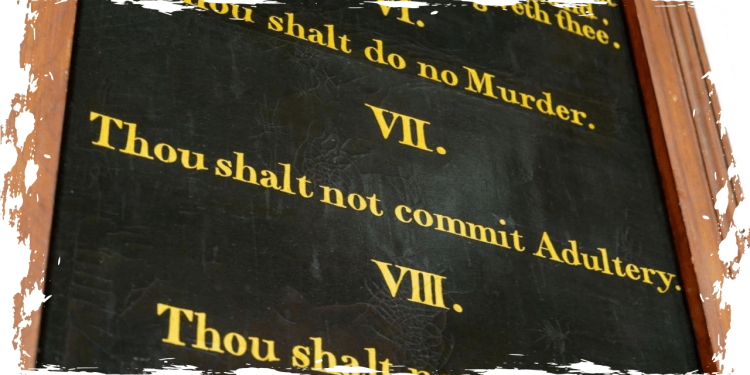Louisiana’s Republican-controlled Legislature has recently passed a law mandating the display of the Ten Commandments in all public school classrooms, making it the first state to do so. The move is part of a broader conservative agenda being championed by the state’s new governor.
Republican Governor Jeff Landry recently signed a new law that mandates the display of the Ten Commandments in all public classrooms, including state-funded universities. The law specifies that the display should be in a poster-sized format and easily readable font to ensure that students of all ages can understand its contents.
Some have raised concerns about the constitutionality of the law and have pledged to contest it in court. However, supporters of the measure argue that it holds historical significance beyond just a religious context. According to the law’s language, the Ten Commandments are considered to be fundamental documents of both our state and national government.
Starting in 2025, classrooms will be required to display posters featuring the Ten Commandments. Accompanying the posters will be a four-paragraph “context statement” that explains the historical significance of the commandments in American public education, where they were present for almost three centuries.
State funds cannot be utilized to enforce the mandate in accordance with the law. The expenses incurred for the posters would be covered by donations.
In K-12 public schools, the law permits the display of various items, such as the Mayflower Compact, Declaration of Independence, and Northwest Ordinance. Although not mandatory, these items hold historical significance and are often referred to as America’s “First Constitution.” The Northwest Ordinance also paved the way for new states to be admitted to the Union and established a government in the present-day Midwest.
Civil rights groups and organizations advocating for the separation of religion and government have vowed to file a lawsuit challenging the recently signed bill at Our Lady of Fatima Catholic School in Lafayette. The governor signed the bill into law on Wednesday, but opposition groups wasted no time in taking action against it.
In a joint statement released on Wednesday afternoon, the American Civil Liberties Union, Americans United for Separation of Church and State, and the Freedom from Religion Foundation highlighted that the existing law not only deprives students of an equal education but also makes children with diverse beliefs feel insecure at school.
In a joint statement, the groups expressed their belief that the law infringes on the separation of church and state and is clearly unconstitutional. They emphasized that the First Amendment of the Constitution guarantees everyone the freedom to choose their own religious beliefs and practices without any interference from the government. The politicians have no right to impose their religious views on students and families in public schools. It is imperative that the government respects the religious diversity of its citizens and refrains from imposing any particular doctrine on them.
Back in April, State Senator Royce Duplessis voiced his opposition to the legislation in an interview with CBS affiliate WWL-TV.
Duplessis, a Democrat, emphasized the importance of the separation of church and state. He shared that he learned the Ten Commandments during his time in Sunday school. During his speech on the Senate floor, he mentioned that if parents want their children to learn the Commandments, they can take them to church.
Louisiana, a state entrenched in the Bible Belt, has passed a controversial law amidst a new era of conservative leadership under Attorney General Jeff Landry. Landry assumed office in January, following the departure of two-term Democratic Governor, John Bel Edwards. With the GOP holding a supermajority in the Legislature and Republicans occupying every statewide elected position, lawmakers have been able to advance a conservative agenda.
According to WWL-TV, State House Representative Dodie Horton is the mastermind behind the bill. During the House hearing in April, she stood by her decision, stating that the Louisiana laws are rooted in the Ten Commandments.
Horton expressed her strong desire and hope that Louisiana would take the lead in allowing moral code to be displayed in classrooms once again. Reflecting on her own experience attending a private school from kindergarten, she fondly recalled how the moral code was always prominently displayed on the classroom wall. It was through this display that she learned about the existence of God and developed a deep respect for His laws, which she carried with her throughout her life.
Several other states, including Texas, Oklahoma, and Utah, have proposed bills that mandate the display of the Ten Commandments in classrooms. However, due to concerns over the constitutionality of such measures and potential legal challenges, no state other than Louisiana has been successful in passing such a bill into law.
Classroom displays of the Ten Commandments have been the subject of legal battles for quite some time.
The U.S. Supreme Court, in 1980, declared that a comparable Kentucky law was unconstitutional and violated the establishment clause of the U.S. Constitution. This clause states that Congress cannot “make no law respecting an establishment of religion.” The Supreme Court concluded that the Kentucky law lacked any secular purpose and was solely designed to serve a religious agenda.










